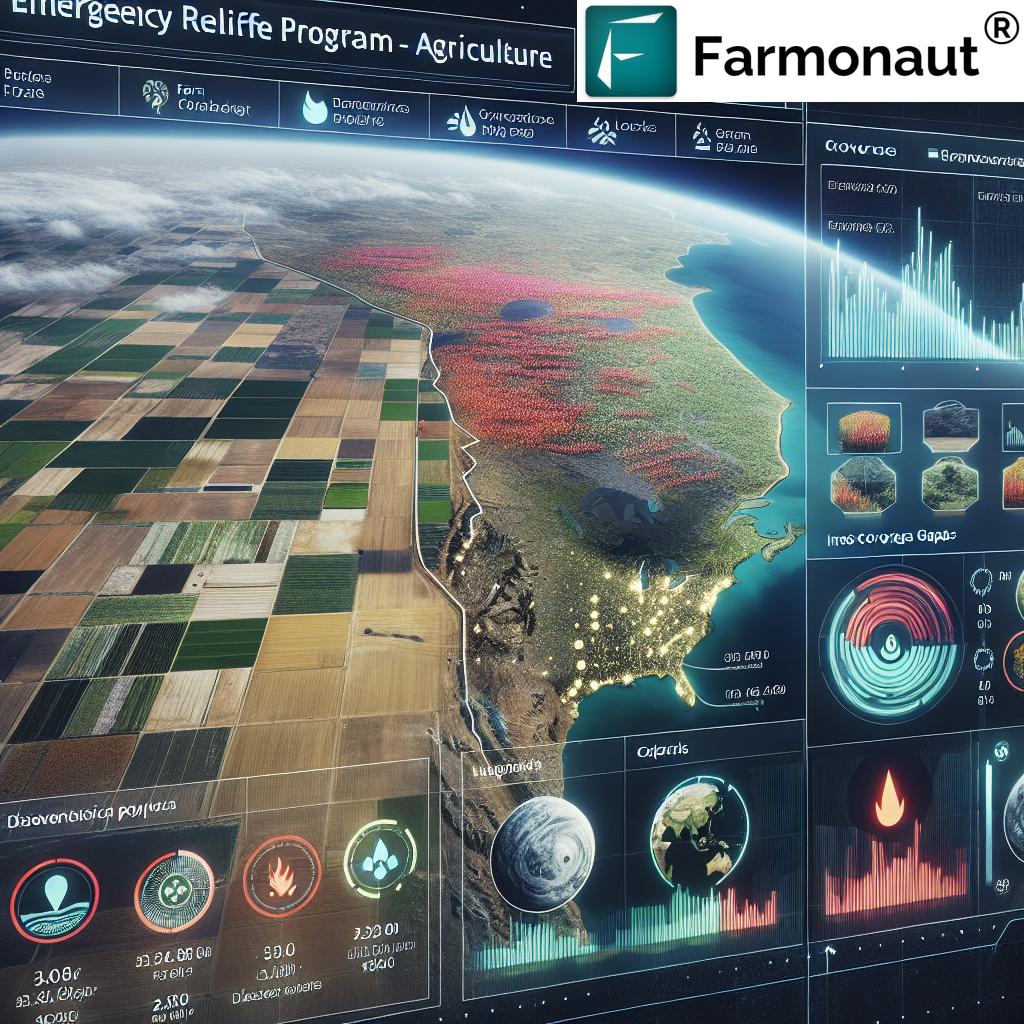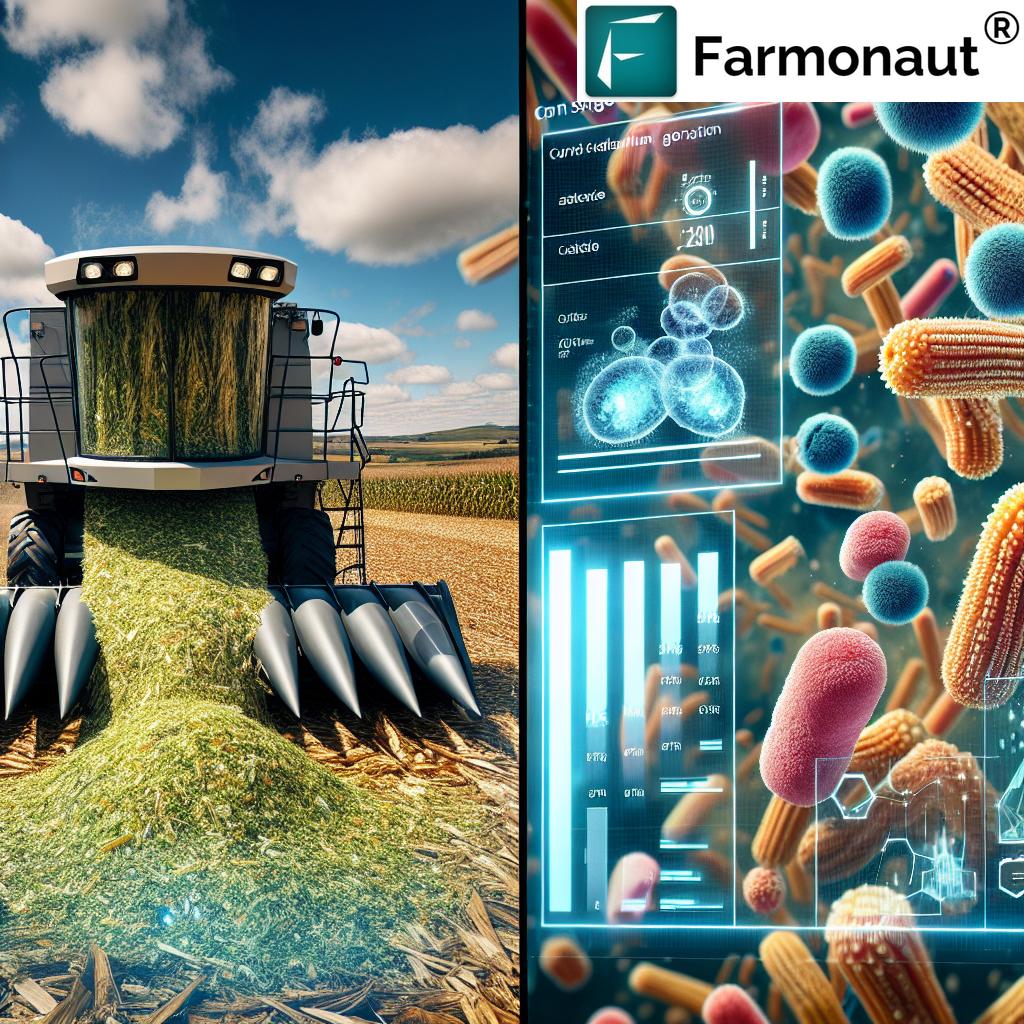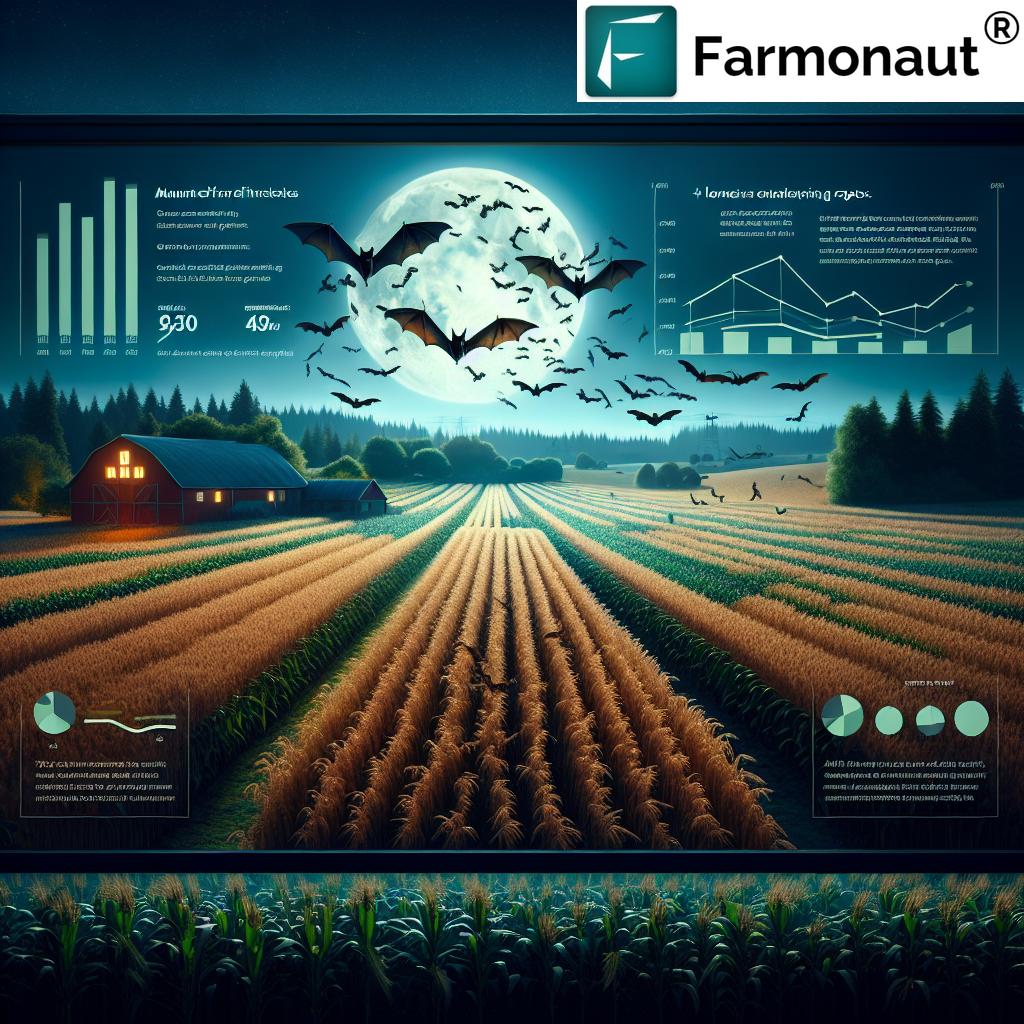Preserving Florida’s Farmland: Innovative Strategies to Combat Urban Sprawl in Lake County
“Lake County, Florida, is exploring a $50 million bond initiative to preserve farmland and combat urban sprawl.”
In the heart of the Sunshine State, Lake County, Florida, finds itself at a critical juncture. As urban sprawl threatens to consume vast swaths of agricultural land, we’re witnessing a race against time to preserve the county’s rich farming heritage. Today, we’ll delve into the innovative farmland preservation strategies being employed to combat this pressing issue, exploring how Lake County is striving to balance growth with conservation.
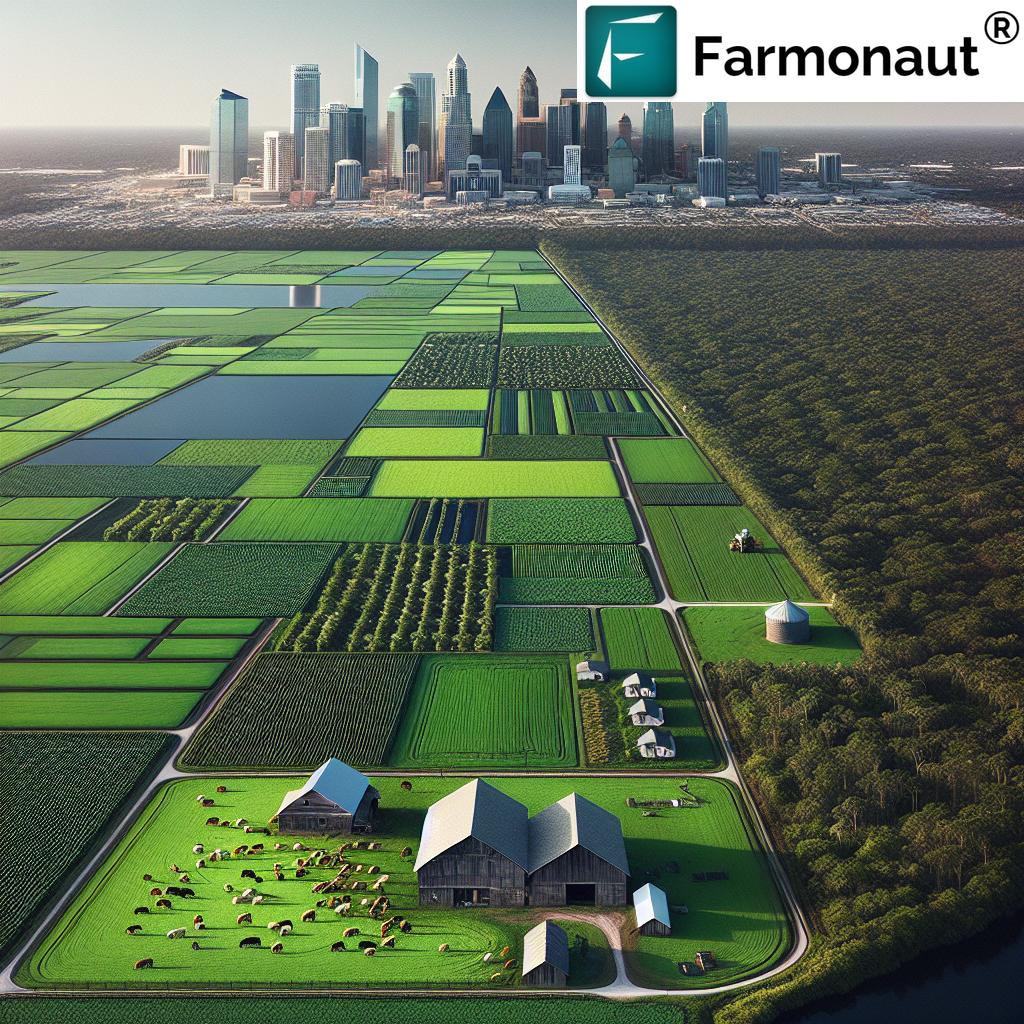
The Urgency of Farmland Preservation in Florida
Florida’s rapid population growth has put tremendous pressure on its agricultural lands. With over 175,000 acres of farmland at risk of conversion to urban use annually, the need for effective farmland preservation strategies has never been more critical. Lake County, with its population expected to swell by an additional 100,000 within the next decade, stands at the forefront of this challenge.
As we witness open farmland being rapidly replaced by subdivisions, there’s a growing concern that agriculture may disappear entirely from the region. This transformation not only threatens the county’s rural character but also poses significant risks to food security, environmental sustainability, and the local economy.
Lake County’s Multifaceted Approach to Conservation
In response to these challenges, Lake County officials are working tirelessly to slow down rapid development and preserve the area’s rural and agricultural identity. Let’s explore some of the key strategies being implemented:
1. Land Acquisition for Conservation
One of the most direct approaches to farmland preservation is the acquisition of land for conservation purposes. Lake County has taken a bold step in this direction with the approval of a $50 million land acquisition bond by voters. While this funding won’t be available until 2026, it represents a significant commitment to protecting valuable agricultural lands from development.
2. Financial Incentives for Farmers
Recognizing the economic pressures faced by farmers, some commissioners are pushing to fast-track conservation easements. These easements provide financial incentives for farmers to keep their land in agricultural use, offering a win-win solution that supports both farmers and conservation efforts.
3. Zoning and Annexation Challenges
One of the most complex issues facing Lake County is the challenge of city annexations that change zoning rules to allow more development. While county officials acknowledge their limited tools to stop these annexations, they are exploring innovative zoning strategies to protect agricultural lands from unchecked urban expansion.
The Role of Technology in Farmland Preservation
As we grapple with these challenges, innovative technologies are emerging as powerful tools in the fight to preserve farmland. Farmonaut, a pioneering agricultural technology company, offers advanced satellite-based farm management solutions that can play a crucial role in these conservation efforts.
Through its satellite-based crop health monitoring and AI-driven advisory systems, Farmonaut provides valuable insights that can help farmers optimize their land use, potentially reducing the economic pressures that often lead to farmland conversion. By making precision agriculture more accessible and affordable, such technologies can support the viability of farming operations, thereby contributing to farmland preservation efforts.
“Florida’s rapid population growth has put over 175,000 acres of farmland at risk of conversion to urban use annually.”
Comparing Lake County’s Farmland Preservation Strategies
| Strategy | Estimated Cost | Potential Impact | Implementation Challenges |
|---|---|---|---|
| Land Acquisition Bond | $50 million | High | Delayed funding availability (2026) |
| Conservation Easements | Varies | Medium | Complexity of negotiations, long-term monitoring |
| Zoning Policies | Low | Medium | City annexation challenges, political resistance |
| Precision Agriculture Tech | Moderate | Medium-High | Farmer adoption, initial investment costs |
The Impact of Population Growth on Agriculture
The rapid population growth in Lake County is at the heart of the farmland preservation challenge. With the current population of around 410,000 expected to increase by nearly 25% in just a decade, the pressure on agricultural lands is immense. This growth not only leads to direct land conversion but also creates indirect pressures through increased demand for water, infrastructure, and urban services.
To address these challenges, Lake County is exploring a range of strategies:
- Smart Growth Initiatives: Encouraging higher-density development in urban areas to reduce sprawl
- Transfer of Development Rights (TDR) Programs: Allowing landowners to sell development rights from agricultural areas to designated growth zones
- Urban Agriculture Programs: Promoting farming within urban areas to maintain agricultural activity and food production
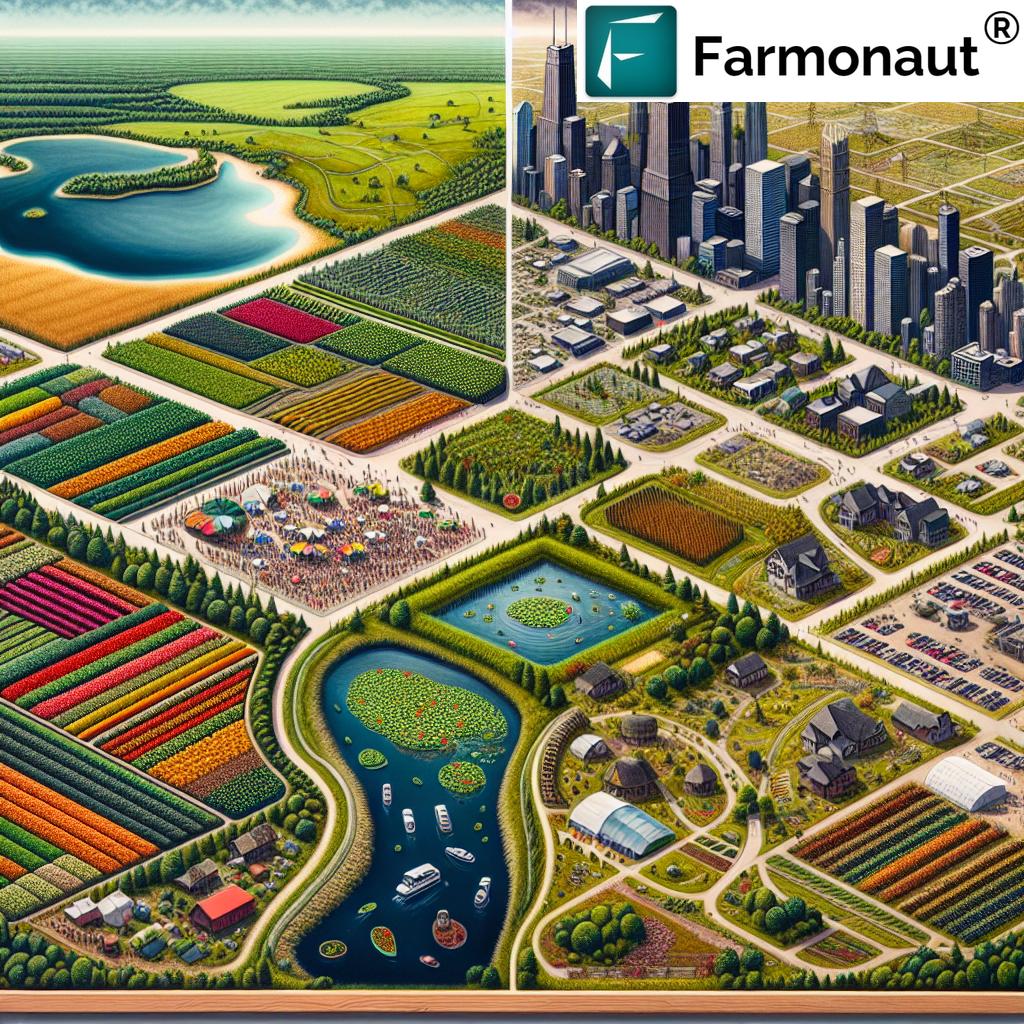
The Need for State and Federal Support
While Lake County is taking significant steps to address farmland preservation, there’s a growing recognition that state and federal support is crucial for long-term success. County Commissioner Anthony Sabatini highlighted this issue, stating, “Some states have done a great job protecting farmland, and I would argue Florida is doing a horrible job protecting it.”
To address this, county leaders are planning to form a citizen’s advisory board by April. This board will be tasked with identifying key farmland for preservation and advocating for state and federal conservation funding. Such collaboration between local, state, and federal entities is essential for developing comprehensive farmland loss prevention strategies.
Balancing Development and Agriculture: A Delicate Act
As we navigate the complex terrain of farmland preservation, it’s clear that balancing development and agriculture is a delicate act. Lake County’s efforts to maintain its rural character while managing explosive population growth showcase the challenges faced by many communities across Florida and beyond.
Some key considerations in this balancing act include:
- Economic Viability: Ensuring that farming remains economically viable to reduce pressure for land conversion
- Infrastructure Planning: Carefully planning infrastructure development to support growth without encroaching on prime agricultural lands
- Community Engagement: Involving local communities in decision-making processes to ensure that preservation efforts align with local needs and values
Technologies like those offered by Farmonaut can play a crucial role in this balancing act. By providing farmers with tools for precision agriculture and efficient resource management, such technologies can help make farming more profitable and sustainable, potentially reducing the economic pressures that often lead to farmland conversion.
Innovative Approaches to Farmland Preservation
As we continue to explore farmland preservation strategies, several innovative approaches are emerging:
1. Agritourism Initiatives
Encouraging agritourism can provide additional income streams for farmers, making it more economically viable to maintain agricultural lands. This approach not only supports farmers but also educates the public about the importance of agriculture.
2. Local Food Systems
Developing robust local food systems can increase demand for locally-grown products, supporting the economic viability of farms. This approach aligns with growing consumer interest in locally-sourced, sustainable food.
3. Agricultural Enterprise Zones
Creating designated agricultural enterprise zones can provide tax incentives and other benefits to farmers operating within these areas, encouraging continued agricultural use of the land.
The Role of Technology in Modern Agriculture
As we discuss farmland preservation, it’s crucial to recognize the role of technology in making agriculture more efficient and sustainable. Advanced technologies can help farmers optimize their operations, potentially reducing the economic pressures that often lead to farmland conversion.
Farmonaut, for instance, offers a range of tools that can support these efforts:
- Satellite-Based Crop Health Monitoring: This technology allows farmers to monitor crop health in real-time, enabling more efficient resource use and potentially increasing yields.
- AI-Driven Advisory Systems: By providing personalized advice based on satellite data and other inputs, these systems can help farmers make more informed decisions about crop management.
- Resource Management Tools: These tools can help farmers optimize their use of water, fertilizers, and other resources, potentially reducing costs and environmental impact.
By making such technologies more accessible and affordable, companies like Farmonaut are playing a crucial role in supporting the viability of farming operations, which is essential for long-term farmland preservation.
For those interested in exploring these technologies further, Farmonaut offers several access points:
For developers interested in integrating these technologies into their own systems, Farmonaut also offers an API. Detailed documentation is available in the API Developer Docs.
Community Engagement and Public Workshops
Recognizing the importance of community involvement in farmland preservation efforts, Lake County officials are planning public workshops to discuss strategies with the community. These workshops will provide a platform for citizens to voice their concerns, share ideas, and contribute to the development of effective preservation strategies.
Key topics likely to be discussed in these workshops include:
- Prioritizing areas for preservation
- Exploring funding mechanisms for conservation efforts
- Discussing potential policy changes to support farmland preservation
- Identifying opportunities for collaboration between farmers, residents, and local businesses
These workshops represent a crucial step in ensuring that farmland preservation efforts align with the needs and values of the local community. By fostering open dialogue and collaboration, Lake County aims to develop strategies that not only protect agricultural lands but also enhance the overall quality of life for residents.
Looking to the Future: Long-Term Strategies for Farmland Preservation
As we look to the future, it’s clear that preserving Florida’s farmland will require a multifaceted, long-term approach. Some key strategies that Lake County and other regions might consider include:
1. Comprehensive Land Use Planning
Developing and implementing comprehensive land use plans that explicitly prioritize farmland preservation can help guide development in a way that minimizes impact on agricultural lands.
2. Agricultural Education and Workforce Development
Investing in agricultural education and workforce development programs can help ensure a new generation of farmers is ready to take over and continue agricultural traditions.
3. Sustainable Farming Practices
Promoting and supporting the adoption of sustainable farming practices can help improve the long-term viability of farms while also addressing environmental concerns.
4. Regional Collaboration
Collaborating with neighboring counties and regions can lead to more comprehensive and effective farmland preservation strategies, recognizing that agricultural systems often extend beyond county boundaries.
The Economic Case for Farmland Preservation
While the environmental and cultural reasons for preserving farmland are often emphasized, it’s crucial to also consider the economic benefits. Agriculture remains a significant contributor to Florida’s economy, and preserving farmland can have numerous economic advantages:
- Job Creation: Agriculture provides both direct and indirect employment opportunities in rural communities.
- Local Food Security: Maintaining local food production can help buffer against supply chain disruptions and price fluctuations.
- Tourism: Agricultural landscapes and activities can attract tourists, contributing to the local economy.
- Ecosystem Services: Farmland provides valuable ecosystem services such as flood mitigation and carbon sequestration, which have economic value.
By highlighting these economic benefits, advocates for farmland preservation can build stronger cases for conservation efforts and potentially attract more support from policymakers and the public.
Leveraging Technology for Sustainable Agriculture
As we continue to explore strategies for farmland preservation, it’s crucial to consider how technology can support sustainable agricultural practices. Advanced tools and platforms can help farmers optimize their operations, potentially increasing profitability and reducing the pressure to convert farmland to other uses.
Farmonaut‘s suite of technologies offers several advantages in this regard:
- Precision Agriculture: By providing detailed insights into crop health and soil conditions, Farmonaut’s satellite-based monitoring can help farmers make more precise decisions about resource allocation, potentially reducing waste and improving yields.
- Weather Forecasting: Accurate weather predictions can help farmers plan their activities more effectively, reducing crop losses due to unexpected weather events.
- AI-Driven Insights: The Jeevn AI advisory system can provide personalized recommendations, helping farmers adopt best practices tailored to their specific conditions.
By making these technologies more accessible and affordable, companies like Farmonaut are playing a crucial role in supporting the long-term viability of farming operations, which is essential for farmland preservation efforts.
FAQ Section
Q: Why is farmland preservation important in Lake County, Florida?
A: Farmland preservation is crucial in Lake County due to rapid population growth and urban sprawl threatening agricultural lands. It helps maintain food security, preserve rural character, support the local economy, and provide environmental benefits.
Q: What strategies is Lake County using to preserve farmland?
A: Lake County is employing various strategies, including a $50 million land acquisition bond, conservation easements, exploring zoning policies, and considering innovative approaches like agritourism and local food system development.
Q: How can technology support farmland preservation efforts?
A: Technology, such as Farmonaut’s satellite-based crop monitoring and AI advisory systems, can help farmers optimize their operations, potentially increasing profitability and reducing pressure to convert farmland to other uses.
Q: What role do state and federal governments play in farmland preservation?
A: State and federal support is crucial for long-term success in farmland preservation. This can include funding for conservation programs, supportive policies, and collaboration with local initiatives.
Q: How can community members get involved in farmland preservation efforts?
A: Community members can participate in public workshops, support local farms through farmers’ markets and CSAs, advocate for farmland preservation policies, and stay informed about local land use decisions.
Conclusion: A Call to Action for Farmland Preservation
As we’ve explored throughout this article, preserving Florida’s farmland, particularly in Lake County, is a complex but crucial endeavor. The challenges posed by rapid population growth and urban sprawl are significant, but so too are the innovative strategies being developed to combat them.
From land acquisition bonds and conservation easements to the adoption of advanced agricultural technologies, Lake County is at the forefront of efforts to balance development with preserving its rich agricultural heritage. The success of these efforts will depend on continued collaboration between local officials, farmers, residents, and technology providers.
As we look to the future, it’s clear that preserving farmland is not just about maintaining agricultural production. It’s about protecting our food security, preserving our cultural heritage, supporting local economies, and ensuring environmental sustainability for generations to come.
We encourage all stakeholders – from policymakers and farmers to residents and technology innovators – to engage actively in these preservation efforts. By working together and leveraging the best of both traditional wisdom and modern technology, we can ensure that Lake County’s agricultural lands continue to thrive in the face of urban expansion.
The journey to preserve Florida’s farmland is ongoing, and every step taken today will shape the landscape of tomorrow. Let’s commit to making those steps count, for the benefit of our communities, our environment, and our future.
Earn With Farmonaut: Affiliate Program
Earn 20% recurring commission with Farmonaut’s affiliate program by sharing your promo code and helping farmers save 10%. Onboard 10 Elite farmers monthly to earn a minimum of $148,000 annually—start now and grow your income!










